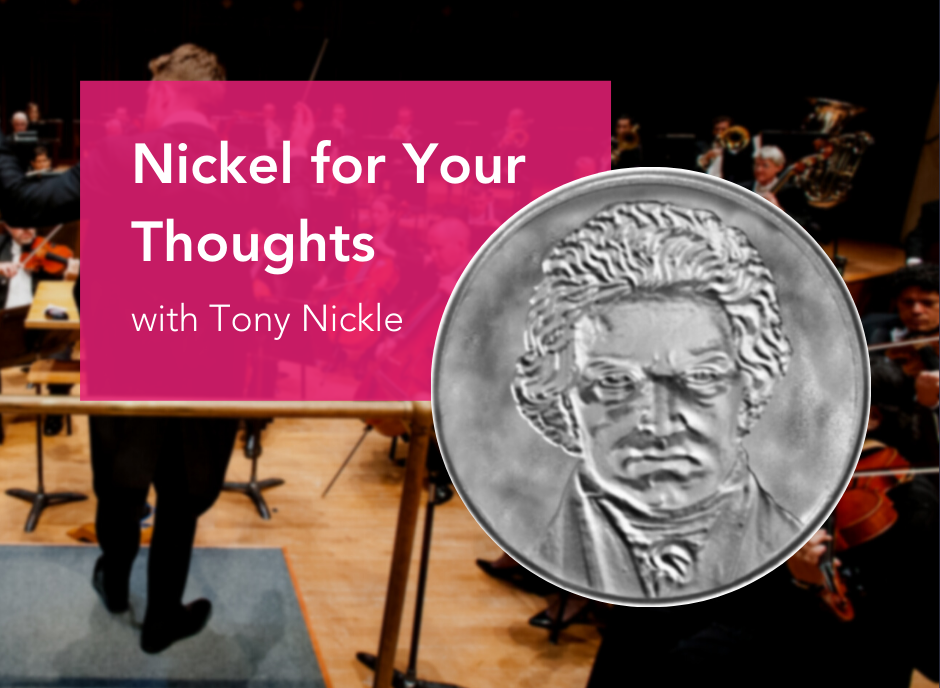In his own words, Artistic Administrator Tony Nickle shares what he believes to be the high points of the program, but with a little edge and humor for good measure.
The end of this unprecedented season is in sight, with only two classical weekends remaining. This weekend’s program has a couple of threads running through it: 1. The musical lineage that runs from Beethoven to Wagner is one of the most compelling (and at times controversial) in all of Western music history; and, 2. Elgar’s Salut d’amour and Wagner’s Siegfried Idyll were both written as surprise gifts for the composers’ respective wives.
Beethoven’s Second Symphony is not so much a clear ground plan for the devices that would eventually become the core tools for German Romanticism – we don’t really get to that in his symphonies until the Eroica – but it is certainly a piece where the composer is notably pushing in several directions against the Classical conventions of the day. With the luxury of hindsight, you can see him paving roads that will eventually run in the direction of music being framed around drama as much as being guided by traditional ideas like form and structure. More than almost any other composer, Wagner latched on to these ideals in forming the foundations of his own very, very, very extensive principles. Wagner never had the chance to meet Beethoven, being only 14 when the legend died (though he did go so far as to write a fictitious short story about them meeting and discussing what music ought to be), so he was free to interpret old Ludwig’s intentions as best fit his needs. Accuracy aside, he decided that Beethoven’s Ninth and late string quartets were prescient for a new kind of artwork, and he felt he was best qualified to take up that torch. In fact, he modestly called his writings about this The Artwork of the Future. Good thing he didn’t have a Twitter account back then.
Despite Wagner’s personality… quirks… he did write some of the most incredible music in history. He’s mostly known for operas of enormous scale: four to five hours long, huge orchestras, massive productions, and singers who needed so much volume and cut to be heard over it all even after singing for hours on end, that we now have a category of singer called Wagnerian sopranos, tenors, etc. This weekend’s Siegfried Idyll is completely the opposite. On Christmas morning in 1870, Richard surprised his wife, Cosima, for her birthday with 17 musicians lined up outside of their cottage bedroom to premiere this gift that he wrote for her. Kind of makes you rethink that Starbucks gift card you put in your sweetie’s stocking last year. Every time I hear this piece the intimate and delicate melodies and textures take me out of time; it’s like nothing else exists. We’re so lucky Richard decided to publish this gem a few years later for financial reasons, and a good amount of the tunes ended up in the third opera of his Ring Cycle, Siegfried. To hear those you can either enjoy this 18-minute beauty, or sit through the 16-hour Ring Cycle.
Edward Elgar’s four-minute Salut d’amour (“hello, love” or “love’s greeting”) is a delightful sorbet on this program. Like Siegfried Idyll, this piece was a gift; in this case an engagement present for his fiancée, Caroline.
I hope to see you this weekend in Jacoby Symphony Hall for some very tender and uplifting music.
Learn more about the Beethoven and Wagner program here.
By Tony Nickle, Artistic Administrator


